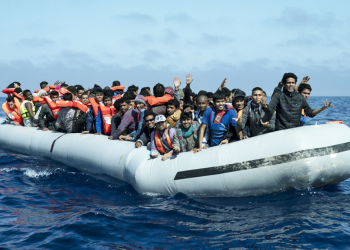The UK government has revealed plans to cut foreign aid, and Africa will face the largest reductions. These cuts will mainly affect children’s education and women’s health. As a result, the government will lower foreign aid by 40%, from 0.5% to 0.3% of national income. This shift aims to increase defense spending, following pressure from the US.
According to the Foreign Office report, Africa will bear the brunt of these cuts. Countries in the region that rely on aid for health services and sanitation will face increased risks of disease and death. Consequently, vulnerable communities will be most affected.
Bond, a UK network of aid organizations, warns that women and children in marginalized communities will suffer the most. They will feel the full impact of the UK aid cuts. Moreover, the report emphasizes that these reductions will deepen existing inequalities.
Despite this, the government claims it will protect funding for multilateral aid bodies, such as the Gavi vaccine alliance. Additionally, the UK will continue to support conflict zones, including Gaza, Ukraine, and Sudan. However, the overall shift in priorities is clear.
Baroness Chapman, Minister for Development, defended the cuts. She stated, “Every pound must work harder for UK taxpayers and the people we help.” She emphasized the importance of prioritizing aid and improving its efficiency.
The Foreign Office also explained that bilateral support to some countries would decrease. At the same time, it will reduce funding to multilateral organizations that are underperforming. However, the government has not yet disclosed which countries will be most affected by these changes.
Bond criticized the decision, claiming that the government is deprioritizing funding for education, gender programs, and countries facing humanitarian crises like South Sudan, Ethiopia, and Somalia. Shockingly, Sudan and the Occupied Palestinian Territories, which were initially protected, will also experience cuts.
Gideon Rabinowitz, Bond’s policy director, commented, “Marginalized communities, especially women and girls in conflict zones, will pay the price for these political choices.” Furthermore, he expressed concern that these cuts would exacerbate already dire humanitarian situations.
The debate over foreign aid is intensifying, with many ministers acknowledging that public support for such spending is declining. As a result, public sentiment is increasingly critical of the aid budget.
One exception to the cuts is the World Bank. The UK confirmed that the International Development Association (IDA) will receive £1.98 billion in funding over the next three years. This funding will benefit 1.9 billion people globally, offering some relief for the world’s most vulnerable populations.
The UK government had committed to increasing overseas aid to 0.7% of national income. This target was achieved in 2013 under the Conservative-Liberal Democrat coalition, and it became law in 2015. However, the UK reduced aid spending to 0.5% in 2021, citing the economic pressures from COVID-19.













